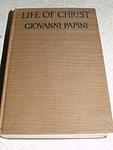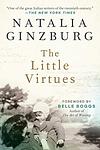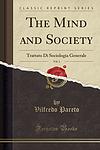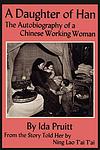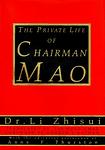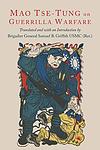The Greatest Italian, Chinese "Nonfiction" Books Since 1900
Click to learn how this list is calculated.
This list represents a comprehensive and trusted collection of the greatest books. Developed through a specialized algorithm, it brings together 300 'best of' book lists to form a definitive guide to the world's most acclaimed books. For those interested in how these books are chosen, additional details can be found on the rankings page.
Genres
Countries
Date Range
Reading Statistics
Click the button below to see how many of these books you've read!
Download
If you're interested in downloading this list as a CSV file for use in a spreadsheet application, you can easily do so by clicking the button below. Please note that to ensure a manageable file size and faster download, the CSV will include details for only the first 500 books.
Download-
1. If This Is a Man by Primo Levi
This book is a deeply moving and insightful memoir of a survivor of Auschwitz, a Nazi concentration camp during World War II. The author, an Italian Jew, provides a detailed account of his life in the camp, the brutal conditions, the dehumanization, and the struggle for survival. The narrative is a profound exploration of the human spirit, resilience, and the will to live, despite unimaginable horror and suffering. It also raises profound questions about humanity, morality, and the capacity for evil.
-
2. Quotations from Chairman Mao by Mao
This book is a collection of speeches and writings by the former leader of the People's Republic of China. It covers a wide range of topics including communism, revolution, class struggle, and the correct handling of contradictions among the people. The book was published with the intention of promoting the leader's ideology and was widely distributed during the Cultural Revolution. It was considered an essential guide to life and politics in China during this period.
-
3. The Periodic Table by Primo Levi
"The Periodic Table" is a collection of short stories that use elements of the periodic table as metaphors to explore the author's experiences as a Jewish-Italian chemist before, during, and after World War II. Each chapter is named after a chemical element, reflecting its significant role in the story. The work provides deep insights into the human condition and the power of science, while also serving as a poignant memoir of survival during the Holocaust.
-
4. Wild Swans: Three Daughters of China by Jung Chang
This book is a biographical account of three generations of women in China, spanning the years 1909 to 1991. The narrative follows the lives of the author's grandmother, a warlord's concubine; her mother, a high-ranking official in the Communist Party; and the author herself, who grew up during the Cultural Revolution before moving to the West. The book presents a vivid portrayal of the political and social changes in China during the 20th century, as seen through the eyes of these three women.
-
5. Christ Stopped at Eboli: The Story of a Year by Carlo Levi
The book is a memoir about the author's year of exile in a remote region of southern Italy during the fascist regime. It depicts the harsh living conditions, poverty, and backwardness of the area, where the peasants' lives are ruled by superstition and tradition. Despite the difficulties, the author finds beauty and dignity in the people and their way of life, and he paints a vivid picture of their culture, beliefs, and struggles. The title refers to the locals' belief that they have been forgotten by modernity and even by God.
-
6. Danube by Claudio Magris
This literary work is a rich tapestry that combines travelogue, history, and cultural analysis, following the journey of the river Danube from its sources in the heart of Europe to its delta at the Black Sea. As the narrative meanders through various countries, it delves into the complex history and diversity of the regions along the riverbanks, reflecting on the interplay of different cultures, languages, and peoples. The book is a contemplative exploration of the European spirit, examining the river as both a physical and metaphorical conduit through which ideas and influences have flowed, shaping the continent's past and present.
-
7. The Drowned and the Saved by Primo Levi
This book is a deeply moving exploration of the Holocaust, written by a survivor. It delves into the horrifying experiences at Auschwitz, examining the psychological impact on the prisoners, the brutal behavior of the guards, and the complex moral dilemmas faced by both. The author also discusses the concept of memory and its unreliability, especially in the context of such traumatic events, and analyzes the ways in which the Holocaust has been represented and remembered in society. The book serves as a profound meditation on the human condition under extreme circumstances.
-
8. The Marriage Of Cadmus And Harmony by Roberto Calasso
"The Marriage of Cadmus and Harmony" is a unique exploration of Greek mythology. The narrative follows the journey of Cadmus, a Phoenician prince, and his marriage to Harmony, a goddess. The book delves deep into the complex and rich tapestry of Greek myths, presenting them as a continuous and ever-evolving story. It offers fascinating insights into the gods, heroes, and monsters of ancient Greece, while also drawing connections to modern life and thought.
-
9. Prison Notebooks by Antonio Gramsci
The book in question is a collection of intellectual and critical writings composed by an influential Marxist thinker while incarcerated by a Fascist regime. These notebooks delve into a wide array of subjects, including political theory, sociology, critical theory, and cultural analysis. Central to the work is the concept of cultural hegemony, which explores how state power and societal norms are maintained not just through force but also through cultural institutions and practices that shape public consciousness. The author's reflections on power, class, and ideology have had a profound impact on contemporary political and social thought, offering a nuanced understanding of the superstructures that govern societal dynamics and the potential for transformative change.
-
10. Life of Christ by Giovanni Papini
"Life of Christ" is a comprehensive biography of Jesus Christ, exploring his life, teachings, and impact on humanity. The book delves into the historical, cultural, and spiritual context of his era, providing in-depth analysis of his miracles, parables, and relationships with his disciples and followers. The author also examines the significance of Christ's crucifixion and resurrection, aiming to provide a thorough understanding of his life and mission.
-
11. The Little Virtues by Natalia Ginzburg
"The Little Virtues" is a collection of essays that delve into the fabric of everyday life, exploring themes such as the intricacies of family relationships, the importance of personal growth and integrity, and the role of education and parenting. The author reflects on her own experiences, including her upbringing in Italy, the impact of World War II on her life, and her observations on the cultural and societal norms of her time. With a blend of personal anecdote and philosophical insight, the essays advocate for the pursuit of larger virtues—such as generosity, honesty, and courage—over the 'little virtues' like frugality and caution, suggesting that a life well-lived is one that embraces the full spectrum of human potential and kindness.
-
12. The Mind and Society by Vilfredo Pareto
This book is a comprehensive analysis of the social and psychological processes that shape human behavior and society. The author introduces the concept of "residues" and "derivations" as the main drivers of human actions and societal change. He argues that residues, innate characteristics within individuals, are more stable and influential in shaping social phenomena, while derivations are the justifications or explanations people give for their actions. The book further delves into the classification of residues and the role they play in economics, politics, and social dynamics.
-
13. A Daughter Of Han: The Autobiography Of A Chinese Working Woman by Ning Lao Tai-Tai, told to Ida Pruitt
This book provides a personal account of a woman's life in late 19th and early 20th century China, as she navigates the complexities of poverty, tradition, and societal upheaval. Through her eyes, readers experience the struggles of the lower classes, particularly for women, in a rapidly changing society. Her story is one of resilience and determination, as she confronts challenges such as opium addiction in her family, the death of her children, and the need to work as a servant and street peddler. Her narrative offers a vivid portrayal of the customs, family life, and social hierarchies of her time, providing a valuable historical perspective on the life of an ordinary woman in China.
-
14. The Montessori Method by Maria Montessori
The book provides an in-depth exploration of the educational method developed by the author for teaching children. It emphasizes the importance of self-directed activity, hands-on learning, and collaborative play in child development. The book also discusses the author's philosophy of observing children in a "prepared environment" where they have access to materials and experiences to aid their learning. The method encourages children to make creative choices in their learning, while the teacher guides the process. The book also delves into the author's belief in the critical importance of the early years of a child's life in shaping their future development.
-
15. The Future Of Democracy by Norberto Bobbio
In "The Future of Democracy," the author provides a critical examination of the concept and practice of democracy, exploring its historical evolution, inherent challenges, and potential future. The work delves into the tension between the ideals of democracy and the practical realities of governing, addressing issues such as the role of political parties, the influence of public opinion, and the impact of economic inequalities. The author argues for the necessity of continuous democratic reform and the importance of safeguarding democratic principles in the face of changing social and political landscapes, ultimately presenting a thoughtful reflection on the prospects and resilience of democratic systems in the modern world.
-
16. Red Scarf Girl by Ji-li Jiang
"Red Scarf Girl" is a memoir of the author's childhood during the Cultural Revolution in China. The story follows a 12-year-old girl from a previously respected family who is labeled a class enemy and forced to turn against her own parents. The book provides a deeply personal account of the extreme political and social upheaval during this period in China's history, highlighting the fear, confusion, and courage of a young girl struggling to reconcile her loyalty to her family and her loyalty to her country.
-
17. Falling Leaves by Adeline Yen Mah
"Falling Leaves" is a heartbreaking autobiography that recounts the life of a young girl who grows up in a wealthy but abusive family in 20th century China. Despite being the daughter of a prosperous businessman, she is treated as an outcast and blamed for her mother's death, who died shortly after her birth. The story portrays her struggle for acceptance and love within her family, her journey through the cultural revolution in China, and her eventual success as a physician in the U.S. It's a poignant exploration of the themes of familial bonds, resilience, and the human spirit's ability to overcome adversity.
-
18. Chinese Cinderella by Adeline Yen Mah
This book is a memoir of a young girl growing up in China during the 1940s and 1950s. The protagonist is considered unlucky by her family after her mother dies giving birth to her. She is mistreated by her stepmother and largely ignored by her father, leading to a lonely and challenging childhood. Despite these difficulties, she finds solace in her academic achievements and her Aunt Baba's support. The story is a testament to the power of hope and perseverance in the face of adversity.
-
19. Survival In Auschwitz by Primo Levi
This book is a harrowing, first-person account of a man's year-long ordeal in Auschwitz, the infamous Nazi concentration camp. The narrative details the brutal conditions, the dehumanizing treatment, and the constant struggle for survival. Despite the horrors he faces, the author emphasizes the importance of maintaining one's humanity and dignity, even in the face of unimaginable cruelty. The book serves as a poignant reminder of the depths of human depravity, as well as the resilience of the human spirit.
-
20. Il Mestiere Di Vivere by Cesare Pavese
The book is a deeply personal diary that chronicles the inner life of its author, a prominent Italian writer, over a period of more than a decade. It offers a raw and intimate glimpse into his thoughts, daily experiences, and struggles with existential questions, relationships, and his own creative process. The diary entries reflect on themes of solitude, despair, and the search for meaning, as well as the author's observations on literature, politics, and the human condition. The work is renowned for its literary introspection and the poignant exploration of the challenges inherent in the "craft of living."
-
21. The Private Life of Chairman Mao by Li Zhi-Sui
This book is a memoir written by a personal physician who served Chairman Mao for over two decades. It offers an unprecedented and intimate look into the life and character of the powerful Chinese leader. The book reveals Mao's personal habits, manipulative nature, political maneuvers, and his disregard for human life in the pursuit of his goals. It also uncovers the power struggles within the Chinese Communist Party, providing a unique perspective on China's political history.
-
22. On Guerilla Warfare by Mao
The book is a seminal work on irregular warfare and revolutionary strategy authored by a prominent 20th-century leader. It outlines the tactics and philosophy behind guerrilla warfare, emphasizing the importance of mobile and flexible combat strategies as a means for smaller, less-equipped forces to combat and ultimately defeat larger, conventional armies. The author discusses the integration of political and military efforts and the necessity of popular support among the local populace to sustain such movements. The work has been influential in various revolutionary movements around the globe, providing a tactical framework for conducting insurgency operations.
-
23. China Along The Yellow River by Cao Jinqing
This book provides a detailed sociological examination of rural China through the lens of villages along the Yellow River. The author, an urban intellectual, immerses himself in the daily lives of rural residents, uncovering the profound economic struggles, social changes, and the enduring traditions that define their existence. Through vivid narrative and insightful analysis, the book explores the impact of rapid industrialization and urbanization on these communities, offering a poignant look at the disparities between China's urban and rural landscapes.
-
24. No Picnic on Mount Kenya by Felice Benuzzi
This book is a true story about three Italian prisoners of war in British East Africa during World War II who escape from their POW camp to climb Mount Kenya, Africa's second highest mountain. The narrative is not only about their audacious adventure, but also about the power of the human spirit, camaraderie, and the freedom of the wild. After their climb, they voluntarily return to their POW camp, where they are punished but also celebrated for their incredible feat.
-
25. Zhaun Falun by Li Hongzhi
The book in question is a comprehensive guide to a spiritual discipline rooted in Chinese tradition, offering a path to enlightenment through moral rectitude, meditation, and exercises. It outlines a philosophy centered on the principles of truthfulness, compassion, and forbearance, while also delving into cosmology, human life, and the relationship between the universe and human beings. The text serves as the foundational scripture for practitioners, providing insights into achieving spiritual advancement and understanding the deeper workings of life and the cosmos.
Reading Statistics
Click the button below to see how many of these books you've read!
Download
If you're interested in downloading this list as a CSV file for use in a spreadsheet application, you can easily do so by clicking the button below. Please note that to ensure a manageable file size and faster download, the CSV will include details for only the first 500 books.
Download








